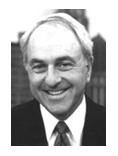|
Kandel on OPEC
|
 |
June 23, 2000: 5:50 a.m. ET
Oil cartel's token increase in output won't help U.S. drivers, politicians
By CNN Financial Editor Myron Kandel
|
NEW YORK (CNNfn) - If OPEC were an American company, it would surely be broken up into many parts, not just two.
But, of course, it isn't a company, but rather a cartel. I know what a cartel is, but I thought it would be interesting to see how Webster's defines the word, and it goes like this: "A combination of independent commercial or industrial enterprises designed to limit competition or fix prices."
And fix prices is what OPEC has done, this time sending them sharply higher by cutting production, to the chagrin of oil-consuming countries, especially the United States. Oil prices, as we know, have shot up so high that skyrocketing gasoline prices have now become a political football, with finger-pointing, demands for investigations, calls for lower taxes, accusations of price gouging and attacks on environmental programs.
 The Clinton administration has so far been ineffective in getting OPEC to relax its production restraints in any meaningful way. This week's decision to add 700,000 barrels a day is only a drop in the oil bucket, and will not do much to reduce prices at U.S. gas pumps -- especially because half of that amount is already accounted for by over-quota "cheating" by OPEC members. The Clinton administration has so far been ineffective in getting OPEC to relax its production restraints in any meaningful way. This week's decision to add 700,000 barrels a day is only a drop in the oil bucket, and will not do much to reduce prices at U.S. gas pumps -- especially because half of that amount is already accounted for by over-quota "cheating" by OPEC members.
The spike in oil prices that has roiled Washington so much doesn't seem to bother such countries as Saudi Arabia and Kuwait, which the United States rescued from Iraq just a decade ago. Thus far at least, President Clinton has done little more than complain about rising prices.
A continuation of high prices is likely to work against the Presidential candidacy of Vice President Al Gore, although George W. Bush's oil background and industry support won't win the Texas governor much sympathy from unhappy motorists.
In the meantime, Republican leaders are blaming the administration for a lack of energy policy, while many Democrats are critical of oil companies and wholesalers. Everyone is unhappy with the situation in the Midwest, where the steep rise in gas prices is variously attributed to pipeline and refinery problems, environmental requirements for cleaner gasoline, low inventories and price fixing, as well as the OPEC-inspired oil-price hikes.
The good news is that gas prices began coming down in the Midwest on Thursday. Some cynics noted that that happened just as the Federal Trade Commission began investigating whether there was price-fixing by the oil companies operating in the region.
Despite relatively minor cheating, OPEC members -- and such non-cartel producers as Mexico and Norway that have gone along with production limits -- have been surprisingly cohesive in sticking to the quotas. That sent oil prices shooting up to $34 a barrel, well above the $28 target that OPEC itself had set at its March meeting. At that time, OPEC informally agreed that if prices topped $28 on a 20-day moving average, the cartel would automatically raise production by 500,000 barrels a day. That happened two weeks ago, and OPEC did not move until this past Wednesday. So much for "automatic" relief.
The Clinton administration has one key card to play that it has not yet used. That's tapping the nation's strategic petroleum reserve, which has been built up for emergencies. Some legislators, notably Democratic Senator Chuck Schumer of New York, have been calling for some time for some of that reserve to be used to get prices down. Opponents say that's not the purpose of the reserve, and free-market forces should be allowed to operate. And so far the administration has resisted such action.
OPEC, of course, like any other cartel, does not promote a free market, but now its actions are closely involved with U.S. politics. This time, at least, oil and politics are definitely mixing. 
|
|
|
|
|
 |

|

